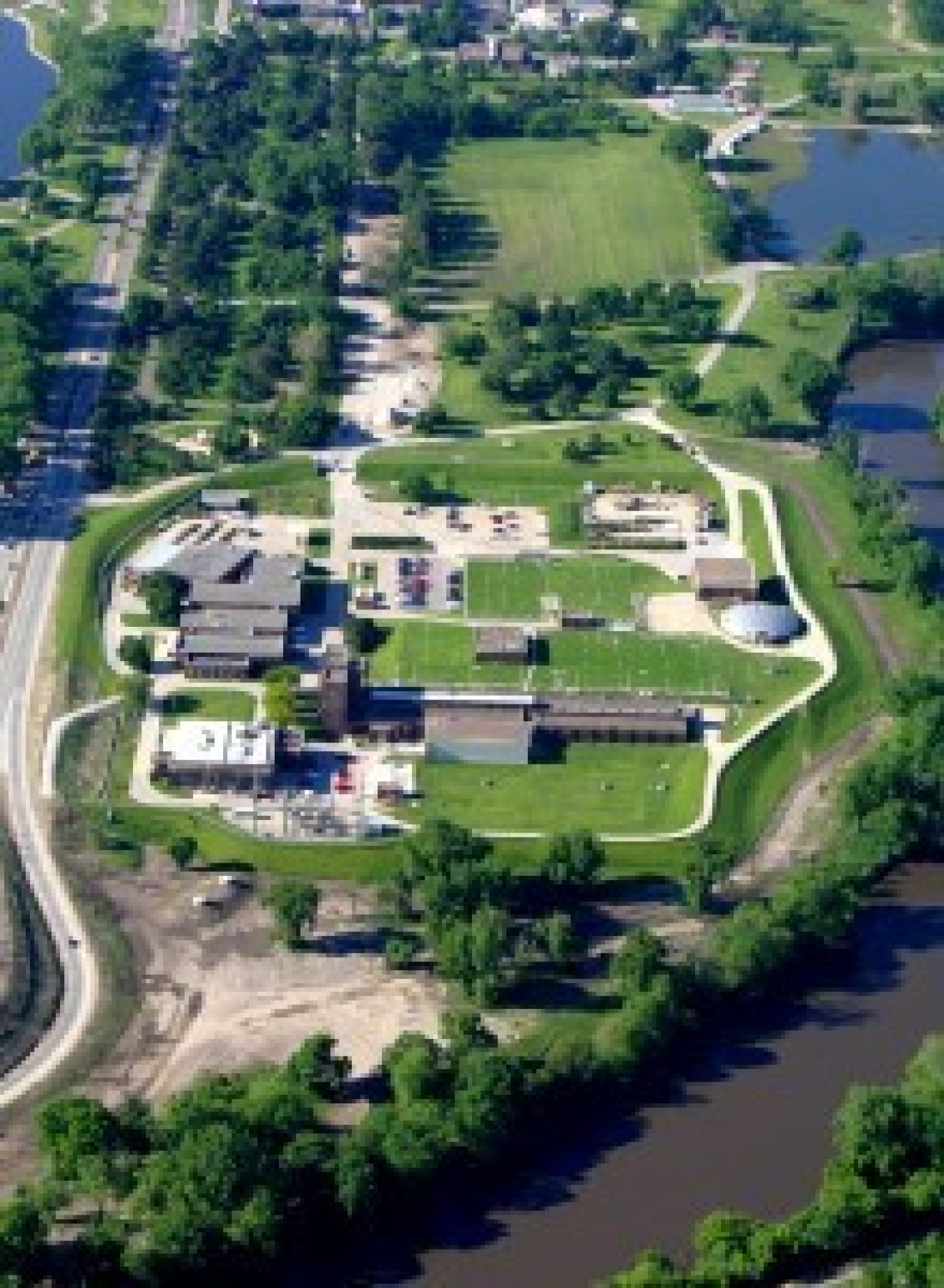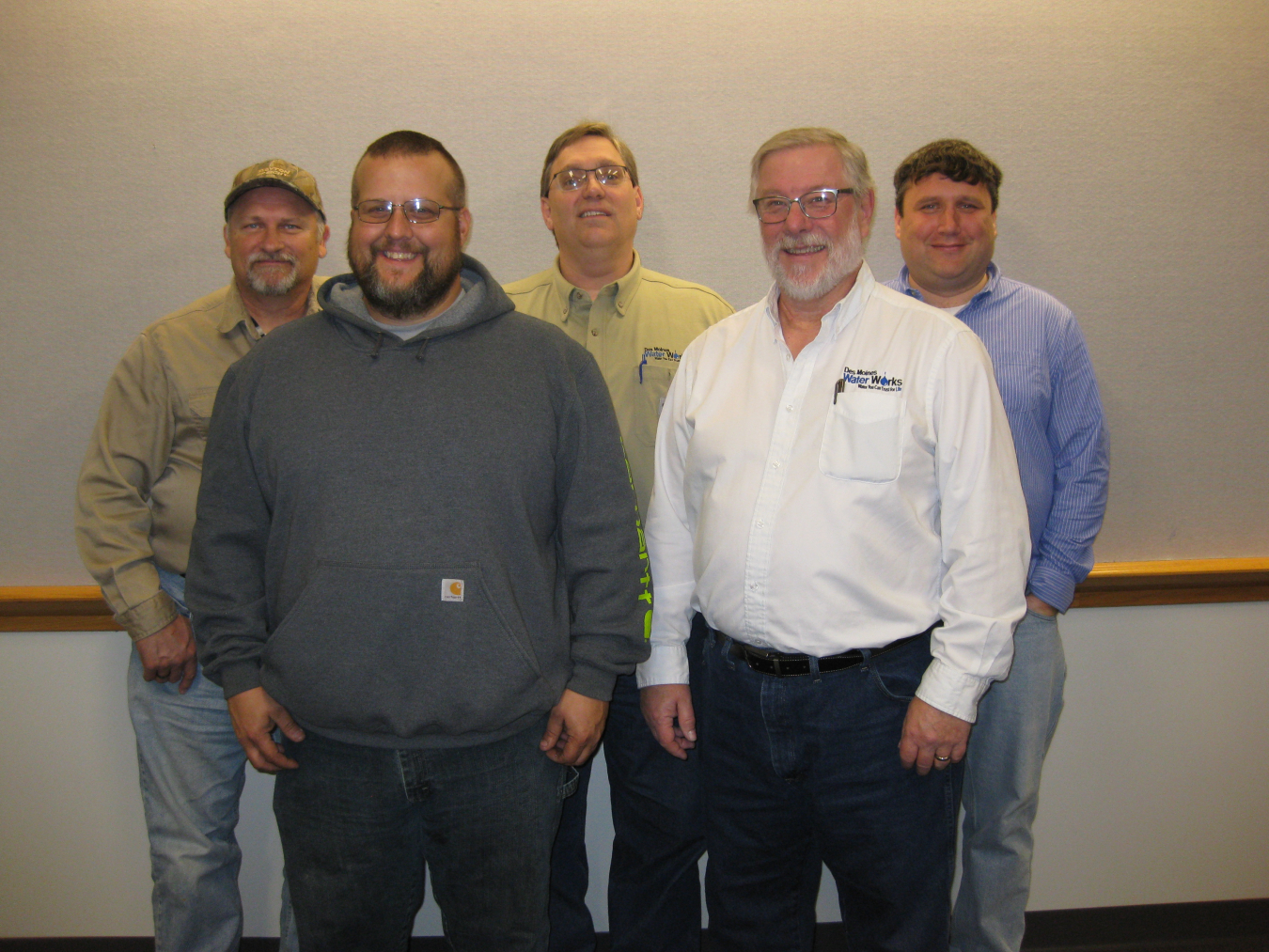Des Moines Water Works (DMWW) recently became the first U.S. water treatment utility to certify a plant to the ISO 50001 standard and Superior Energy
Advanced Manufacturing & Industrial Decarbonization
January 4, 2018Des Moines Water Works (DMWW) recently became the first U.S. water treatment utility to certify a plant to the ISO 50001 standard and Superior Energy Performance® (SEP) program. The SEP program has long helped industrial and commercial organizations establish energy management systems that meet the widely respected ISO 50001 standard and achieve verified energy and cost savings. As the first certified facility in the water sector, DMWW’s Fleur Water Treatment Plant has paved the way for similar facilities nationwide to increase efficiency, cut costs, and demonstrate responsible management of resources.

“By implementing a rigorous energy management system certified to ISO 50001 and Superior Energy Performance, Des Moines’ Fleur Water Treatment Plant increased its energy performance 2.7% in a single year and is now well-equipped to continuously build on those savings in the years ahead,” said Rob Ivester, director of the Advanced Manufacturing Office in the U.S. Department of Energy (DOE). “We congratulate Des Moines Water Works on this first-of-a-kind certification, which should encourage other water treatment agencies to pursue ISO 50001—tracking energy use and elevating energy awareness throughout their operations.”
Water treatment facilities across America increasingly face aging infrastructures and rising costs. According to the Electric Power Research Institute, U.S. water and wastewater treatment and distribution systems purchase nearly 70 billion kWh annually (about 1.8 percent of U.S. electricity consumption). Low-cost operational changes enabled by an energy management system can sustainably reduce operating costs to enable reinvestment in infrastructure or control rates.
“It is simply no longer an option to address water energy efficiency—it’s a mandate," observes William Stowe, Des Moines Water Works CEO and General Manager. Under Stowe, the Fleur Plant worked closely with DOE to implement ISO 50001 and SEP. DMWW had pursued energy-saving strategies for decades, but in 2014 senior leadership raised the bar by joining the SEP pilot for the water/wastewater sector. In 2016, DMWW joined DOE’s Better Plants program and set a goal to increase energy efficiency 25% utility-wide by 2026. In the following year (2017), DMWW joined the Better Plants Challenge, which involves a commitment to share their solutions.
Participation in the SEP pilot enabled the utility to tap into a set of complementary DOE resources that will help the utility meet its 2026 Better Plants goal and drive continual improvement in energy performance. Key resources include training and free software tools—such as the Energy Performance Indicator (EnPI) Tool.

Managing Energy More Effectively
DMWW formed an energy team that actively involves personnel from across the organization. The team proceeded to develop an energy policy, energy usage baseline, and energy performance improvement models. To better monitor energy consumption, more than 50 sub-meters were installed on pumps, buildings, and other systems that use large amounts of energy. Monitoring, measuring, and analyzing these significant energy users helped to identify several large pieces of equipment that were not operating at peak efficiency, enabling the utility to take corrective steps.
The energy team engaged and shared information with all DMWW employees throughout the implementation process and continues to do so to ensure their ongoing support and involvement. A key source of reliable energy data is the EnPI Tool. It has become a go-to resource for calculating and normalizing performance indicators or analyzing relevant variables for individual systems.
Internalizing Energy Awareness
ISO 50001 and SEP helped the utility establish a formal structure to embed energy management processes and reporting into normal business procedures, ensuring the retention and growth of energy savings over time.
Doug Oscarson, Des Moines Water Works Energy Manager, is enthusiastic about the new energy management system. “The certification is a clear indication to the public, our customers, and employees that Des Moines Water Works is serious about good stewardship of our natural resources, improving energy performance, and reducing carbon emissions,” he said. “As a widely accepted international standard, ISO 50001 garners immediate respect.”
Next Steps for Savings That Endure and Grow
ISO 50001 has empowered employees at Des Moines Water Works to incorporate energy-saving actions in day-to-day operations: taking into consideration how and where energy is used, the cost of energy, and its impact on water rates. This increased employee engagement is shown by a doubling in energy-related employee suggestions. In addition, ISO 50001 has directly involved budgeting and executive staff in evaluating energy projects and their impacts. This new culture of managing energy performance will help the utility expand its energy and cost savings to benefit the environment and all its water customers.
_______________
The DOE-administered Superior Energy Performance® program provides guidance, tools, and protocols for facilities that want third-party verification and certification of their energy performance improvement from implementing the ISO 50001 standard. Members of the U.S. Council for Energy Efficient Manufacturing, the American National Standards Institute (ANSI), and the ANSI-ASQ National Accreditation Board (ANAB) developed SEP as a transparent system for certifying sustained improvements in energy performance and management practices.

